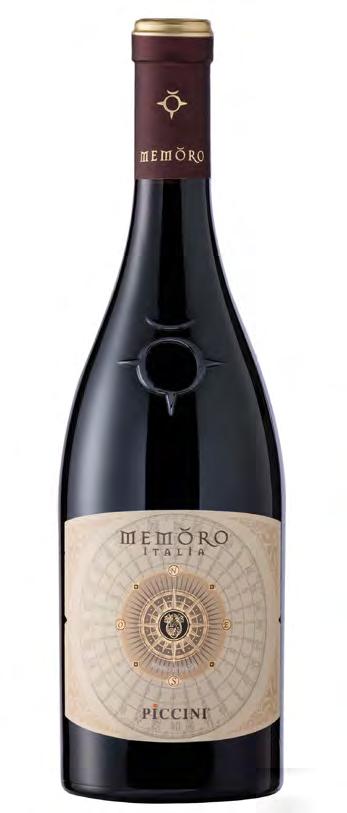4 minute read
Piccini Memoro Rosso
Next Article
Sebastian Morello on a wonderful Mediterranean potion
There was a time when I thought of becoming a Franciscan, and I even spent a few days at a friary of the Friars Minor to get a feel for their way of life. Having chosen quite another life altogether, divine providence has allowed me to live something of the Seraphic Father’s charism by keeping me on the brink of evangelical poverty for much of my adult life.
Obviously, when one is struggling for dosh, one must think carefully about how to use one’s funds, and chief among such considerations is that of how to get hold of decent yet affordable wine. In rare spasms of egalitarian fervour—from which I quickly recover— it strikes me as supremely important that good, cheap wine be known to as many people as possible. I presently write in one such revolutionary fit, and it has led me to shout from the rooftops the praises of Memoro Rosso, by the Tuscan winemaker Piccini.
On marrying my very patient wife, due to my somewhat Franciscan bank account all I could provide to my beloved was a basement in Thornton Heath. Living on a heath in Surrey may sound lovely, but Thornton Heath is in fact a suburb of Croydon, and boasts being the fourth most violent area of that borough, which is itself the most crime-ridden area of London.
One day, friends of ours arrived at our underground squat; in turn, we needed wine. Off I wandered to Thornton Heath’s Tesco Express and, shooting in the dark, I took off the shelf a few bottles of Piccini’s Memoro. I chose this wine on the grounds that it was attractively-priced, a blend, Italian, and I liked the cod-Renaissance label— and in that order. That wonderful evening in the ‘hood’ (as the youths say) was almost a decade ago, and I’ve been drinking the stuff ever since.
Piccini winemakers, a family-owned business to this day, is something of an empire, with fourth generation Mario Piccini as its emperor. With its headquarters in the heart of Tuscany’s Chianti Classico region, the company now owns seven estates across Italy. The various regions where Piccini has made itself present are brought together in the extraordinary Memoro Rosso blend (a winner, by the way, of the much-coveted Decanter Gold Award). The blend comprises Primitivo from Basilicata, Nero d’Avola from Sicily, Merlot from the Veneto, and to my surprise the always disappointing Montepulciano from the Abruzzo—which it turns out just needs to be mixed with other grape types to be salvaged. Thus, grapes have been brought together from every corner of the peninsula to concoct this Mediterranean potion. And whilst there seems something devilishly Garibaldiesque about unifying Italy in a bottle, the outcome is frankly fantastic.

If you like a full-bodied Amarone, but don’t like the cost, then this is the wine for you. It’s dark, very dark; in fact, the label describes the wine as “reminiscent of port”, and at 14% I’m inclined to agree. Made with partially dried grapes for a smooth and yet dense flavour, this is an extremely rich red with a powerful bouquet of every winter berry and sundried currant you can imagine, mixed with aromas of dark chocolate, espresso, and grandpa’s pipe smoke. With a finish that just keeps kicking till the next sip, this is certainly what the Italians would refer to as a “vino da meditazione”.
Such meditation is probably best practiced among the vines of Tuscany. On the other hand, it ’s better in my view to drink the good local wine that doesn’t travel when in those hallowed hills. Piccini’s Memoro Rosso is as perfect on the patio in a spring evening in Bedfordshire as it is by a roaring fire after along mid-Season winter walk, or indeed sipped in a hole in Thornton Heath.
Tuscany is in fact the part of Italy—that city of leaning architecture to be precise—from which the first Franciscan mission came to England in 1224, led by Blessed Agnellus. He established a school at Oxford, whose Franciscan spirit soon animated the whole university. Eventually, from that learned city our Lady’s Immaculate Conception would be defended against the Dominicans in Paris by the Franciscan Dun Scotus, who, as Gerard Manley Hopkins put it, “fired France for Mary without spot.” In turn, here in Albion I’m content to embrace my Franciscanism in meditative moments enjoyed with a glass of Memoro Rosso, raising it first to our Blessed Mother, whose sinlessness was defended in Blighty by the child of a Tuscan mission.

